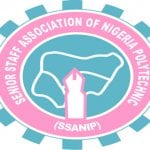Lead, Female Condom Advocate for Nigeria, Mrs Kehinde Osinowo, has described the female condom as an untapped resource to make women stay alive and ensure an appreciable decrease in HIV and sexually transmitted infections.
Osinowo spoke at the sensitisation meeting for female condom advocacy champions in Ibadan at the Association for Reproductive Health (ARFH) building.
ARFH, in partnership with Education As Vaccine (EVA) has been leading advocacy and awareness efforts to support female condom programming in Nigeria through the “Advocacy for Change: Scaling up knowledge and acceptance of Female Condom Programming in Nigeria” known as the Female Condom Advocacy Project (FCAP).
Osinowo, who remarked that female condom to women was a right issue, stated that most women got infected with HIV from their partners.
According to her, “if they had the right to female condom, they would have requested for its use as a protective measure. Female condom offers the opportunity to a woman to exercise her right over sexual matters.
Osinowo, the Director of Programme, ARFH, stated that the female condom remained the only female-initiated means of preventing both pregnancy and sexually transmitted infections (STIs), including HIV.
She added: “Studies and surveys in Nigeria show an urgent need for additional and effective dual protection prevention methods to protect women and couples from STIs, HIV and unintended pregnancy.
“Awareness and knowledge of female condom is still low and female condoms are one of the underutilised contraceptives in Nigeria. Hence, the support of decision makers is of great importance in the promotion and overall societal approval of the product.
“Generating an overall positive attitude towards female condom use and its benefits needs constant sensitisation and engagement of influential societal leaders. Expanded access to and use of the female condom therefore requires targeted advocacy and strategic planning and programming.”
Osinowo, therefore, urged the new advocates for female condom at the occasion to use every opportunity available to promote female condoms to both advocacy targets and the general public at large help achieve increased support for female condoms.
Mrs Adeola Olakunle, a research officer at Association for Reproductive and Family health (ARFH), Ibadan, stated the need to ensure that female condom programming was scaled-up as an integral part of family planning and reproductive health programming in the country.
According to her, the advocates were expected to help improve the knowledge and understanding of decision and policy makers on the reproductive health and rights issues of women as well as scale-up female condom programming in Nigeria.
Earlier, Mrs Kemi Eludipo, a family planning provider officer at ARFH, during a female condom demonstration, stated that condoms must be properly stored out of the sun and in a dry place; properly inserted; not used after expiry date; and can be worn hours before sex.






